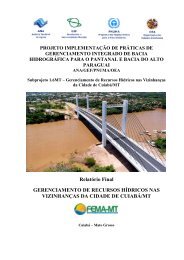Rt€@lll
Rt€@lll
Rt€@lll
You also want an ePaper? Increase the reach of your titles
YUMPU automatically turns print PDFs into web optimized ePapers that Google loves.
- 210<br />
In recenl years' there has been some serious re-thinking among both developed and<br />
developing countries m the directions and pace of future development efforLs. In nnny ways,<br />
this hes been prompted by new perceptions of the need to harmonize economic development<br />
goals and policies with those of environmental proiection and improvement to ensure a better<br />
quality of life for Lhe people. The prospect of near depletion of resources has accelerated<br />
this process.<br />
It has now become clear that the problems of environmental proLection are inseparable<br />
from the problems of economic development. They are in fact two sides of the same coin,<br />
two aspects of the same goal, one reinforcing and underpinning the other. It is then just a<br />
matter of prudent management to approach environmental protection as a dimension of<br />
economic development. We desire neither an immaculate and pristine environment for ils own<br />
sake, nor all-out economic development at the other extreme which exlracts a heavy price in<br />
terms of a degraded environment,<br />
In the past, there has been a tendency to equaLe development with the more narrowly<br />
conceived objective of economic growth as measured by the rise in gross national product or<br />
by physical indicators alone. It is usually recognized today that high rates of economic<br />
growth' necessary and desirable as they are, do not by themselves guerantee the easing of<br />
urgent social and human problems. Indeed in many countries hiqh growth rstes ere<br />
accompanied by increasing unemployment, rising disparities in incomes between groups and<br />
between regions, and the deterioration of social and cullural quality of life. A new emphasis<br />
is thus coming to be placed on the atteinment of social and cultural goals as part of the<br />
development process. The recognition of environmental issues in developing countries is an<br />
aspect of this widening of Bhe development concept. It is part of a nnre integrated or unified<br />
approach to development objectives. This is timely in the Malaysian context as we are now<br />
on the threshold of the Fourth Malaysia Plan, and as we depend partieularly on natural<br />
resources for the generation of economic activities.<br />
The economic growth, progress and well-being of a nation depend largely on adequete<br />
resource availability as well as the systematic developnrent and use of these resources, both<br />
renewable and non renewable, However, even renewable resources are limited to the capacity<br />
of the whole ecological system. Thus there are, in a sense, limits to growth.<br />
Much will depend on the prudent management of these resources and the extent to<br />
which extrection and distribution impacts on the environment, which in turn af f ects<br />
productivity. The capacity of the environment to generate essential renewable resources must<br />
be maintained, restoned or improved. Otherwise, negati ve side-effects m the environrnent will<br />
reduce the pay-off from the hoped-for developnrent to significantly less than the qtimum.<br />
While Malaysia, compared to most developing countries, has seemingly abundant<br />
resourcesr these have experienced rapid growth in the rales of exploilation, producing various<br />
environnpntal probbms.<br />
Strateov for environmental manaoement<br />
In view of the interaction that exists between nesource development and environrnental<br />
quality, environrnental management is understood to rnean prudent or qtimal use,<br />
maintenenee and enhancement of both the quality of our natural resources.<br />
Since the prospects for an abundant supply of natural resources are weak in the long<br />
run, and technologicel innovations are inadequate, diserete and unpredictable, the developing<br />
countries have to take a serious look at their resource limitations, especially renewable<br />
Fesources, snd tailor their development efforts accordingly. TNs does not imply sacrificing<br />
development itself. What it does imply, though, is thaL Lhe patterns of resource development<br />
and regource use have to be restructured through resource management policies which are<br />
integrated, innovative and imaginstive, and focus m employment and efficiently organized<br />
productive activities while treating environment as an important parameter. Essentially<br />
resource management should aim at:<br />
(i) Minimizing westes in the process of resoutce developnnnt, and utilization of wastes<br />
that are produced.<br />
(ii) Developing eppropriate technology for the management and control of wasLes.


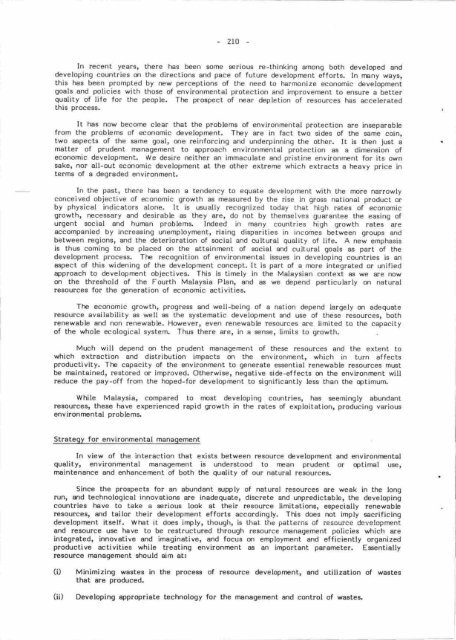
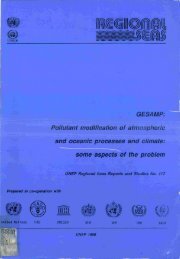
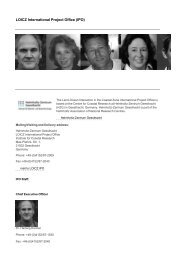
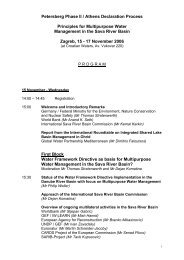
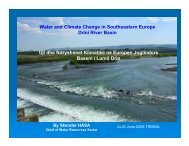



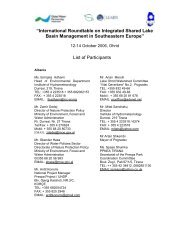

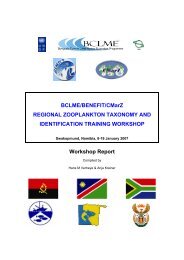
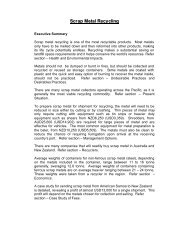
![R]€@lll](https://img.yumpu.com/7594335/1/175x260/reurlll.jpg?quality=85)
